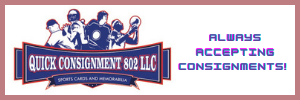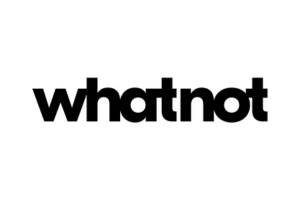
Law of Cards: Beckett Sues Zistle Over Checklists
On April 24, Beckett Media sued Zistle (a website that proclaims it's the "easiest way to organize and trade your cards online"), alleging that Zistle stole a variety of Beckett "checklists." Within its complaint, Beckett included a hodgepodge of claims it previously asserted in other lawsuits against other alleged copyright infringers in the past (MWP Software/Matthew Perry, SaintSoft LLC/John Kountz and Check Out My Cards), but the meat of the Zistle case is copyright infringement.
Paragraphs 15 and 17 of the complaint outline Beckett’s position.
15. In Spring 2014, Plaintiff discovered that the checklist data offered by Defendant on its website has been directly copied from Plaintiff’s Copyrighted Works which can be accessed through www.beckett.com. Additionally, Defendant invites users to submit checklists, then publishes the checklists on its website, including checklists copied from Plaintiff.
….
17. Defendant offers the same card checklists that have been copyrighted by Plaintiff. Despite having not being authorized to do so, and never requesting, nor receiving permission from Beckett, Defendant copied verbatim and republished significant portions of the Copyrighted Works.
Notably while Beckett alleged copyright infringement, it provided no evidence of Zistle’s infringement. No screenshots -- nothing. Also, while Beckett attached copies of its copyright registration certificates to the complaint, it did not provide examples of the works those certificates cover. So, Beckett does not provide us with a side-by-side analysis of the alleged infringement.
This is frustrating to me. I am a plaintiff's attorney that litigates intellectual property cases, including copyright cases. In my copyright complaints, I include a side-by-side analysis of the copyrighted work and the infringing work. This way, the judge, the defendant, media and the public can look at the case and see that it has merit.
From Beckett's bare bones complaint, on the other hand, you can't assess the specific strength of this lawsuit.
That being said, I can assess the strength of a generic copyright lawsuit against generic checklists (i.e., a complete listing of cards in either numerical or alphabetical order).
And my assessment is: any copyright lawsuit against generic checklists is a loser.
It's a basic tenet of copyright law that you can’t copyright facts. The most analogous case is the 1991 Supreme Court decision Feist Publications, Inc. v. Rural Telephone Service Co. That case involved two rival phone book companies in a copyright battle over the alleged copying of phone book listings. The Supreme Court held in Feist that information/facts alone without a minimum of creativity could not be protected by copyright. So, if you copy pages of someone else’s phone book, and all it has is an alphabetical listing of name followed by addresses and phone numbers, those are facts, and facts cannot be copyrighted.
Here, if checklists are just a listing of cards in numerical or alphabetical order, there is no minimum creativity used by the author. That’s just a factual listing, and therefore cannot be protected.
Now, if facts are organized in an originally creative fashion, that is potentially copyrightable. So, if someone created a trading card checklist in a creative fashion and/or included additional creative information within that list then that could be protectable by copyright.
Nowadays, phone book publishers do just this. To get around Feist, they insert false listings into their phone books. Those false listings allegedly have a modicum of originality/creativity within them. Therefore, if a rival wholesale copies an entire phone book with a sufficient number of false (and creatively original) listings, then that could be copyright infringement.
Analogously, if a trading card checklist included false listings and the alleged infringer copied those listings then that could be copyright infringement. Fictitious card listings however defeat the purpose of checklists since collectors rely upon checklists to ensure their collections are complete. If a checklist provider continually had erroneous listings, collectors would most likely find another source for checklists.
For this lawsuit, I expect Beckett will argue that it worked hard to create its checklists, so it should get some type of protection. In fact, Paragraph 16 does just this:
16. …Beckett’s database contains millions of rows of data and millions of pieces of data within those rows. Beckett has expended large amounts of time and money to categorize this data into a format that allows its users to easily search and organize the data. Beckett has independently formulated unique pricing data for the sports memorabilia. Beckett provides access to this data for a fee, and there is a market for licenses to access and use checklists and pricing data. Defendant’s actions have caused Beckett to suffer damages and lost profits in excess of $5,000.00.
This is what is called a "sweat of the brow" argument: I worked hard, so I deserve some type of protection. The Supreme Court in Feist, however, rejected this argument. No matter how hard someone worked, if all he or she did was collect "facts," that is not protectable.
Legal aside: While it’s not relevant to its copyright claim, keep in mind that Beckett’s "large amount of time and money" it allegedly spent on creating checklists (and pricing data which appears not to be at issue in this lawsuit) is alleged for all of the works Beckett created, not just the checklists at issue here. Again, it’s not relevant, but I wouldn’t mind seeing how long it spent on creating the checklists at issue here.
I'll reserve my final judgment until I can see more into this case. But, if this is a generic checklist lawsuit, it would not shock me if Beckett loses.
This case also raises two interesting issues:
- Is this just the first "checklist" lawsuit that we’ll see?
- What will the trading card manufacturers' position be? I mean, it’s technically "their cards" and "their lists." So what really does Beckett claim it owns?
Zistle’s response should come within the next two months, so hopefully that’ll give more insight into the case. And it will help me better assess the strengths of the case.
Legal aside: Hey Zistle – Show us the checklists at issue!
The information provided in Paul Lesko's "Law of Cards" column is not intended to be legal advice, but merely conveys general information related to legal issues commonly encountered in the sports industry. This information is not intended to create any legal relationship between Paul Lesko, Simmons Hanly Conroy or any attorney and the user. Neither the transmission nor receipt of these website materials will create an attorney-client relationship between the author and the readers.
The views expressed in the "Law of Cards" column are solely those of the author and are not affiliated with Simmons Hanly Conroy. You should not act or rely on any information in the "Law of Cards" column without seeking the advice of an attorney. The determination of whether you need legal services and your choice of a lawyer are very important matters that should not be based on websites or advertisements.
 | Making purchases through affiliate links can earn the site a commission |

































Andrew Stellhorn
So basically if someone wanted to recreate zistle, but even better, they would eventually get sued by beckett? no matter how they attained the information?